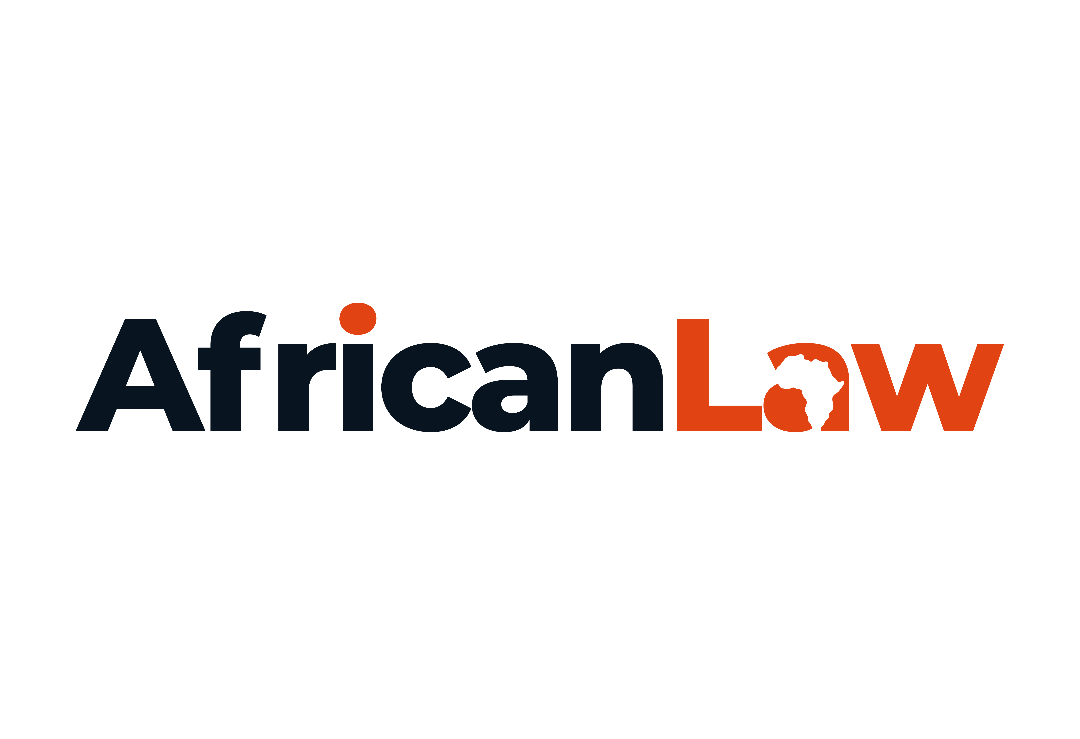Special Guest Contributor Dr. Fifa A Rahman, Civil Society Representative - Access To Covid-19 Tools Accelerator And Principal Consultant, Matahari Global Solutions joins us for an interview in the 1st edition of AfricanLaw magazine to discuss vaccine inequity and distribution in Africa.
Can you tell us about the access to Covid-19 Tools (ACT) Accelerator and your role in the Diagnostics Pillar?
The ACT-Accelerator is the multilateral response to COVID-19, designed to deliver COVID-19 tools, including vaccines, diagnostics, and therapeutics to Low- and Middle-income Countries (LMICs). I represent civil society in the Diagnostics pillar and in the Facilitation Council, which means I have to know a little bit of what’s going on in all pillars and on all technologies being deployed. At the Facilitation Council, a lot of what I do is to collect data, consult CSOs, determine pressure points, and to communicate those pressure points to global health agencies and country officials. For example, I have called out the lack of funding of salaries of community health workers, I’ve called out countries for saying that they are self-sufficient on testing when they weren’t, and I have intervened on points where allocation of vaccines would take into account ‘absorptive capacity’ or the ability of countries to consume the vaccines. On the diagnostics pillar, I’ve reviewed grants to deploy antigen rapid diagnostics to far-to-reach areas and marginalized populations, such as villages more than 20 kms away from nearest health facilities, and for TB patients. The dream is that everyone should have access to antigen self-tests in their homes so they can proactively manage risk.
What is the function of the ACT- Accelerator Facilitation Council?
The ACT-A Facilitation Council is where World Health Organisation (WHO) Member States sit and provide information that can ‘facilitate’ the global response. This is generally where donor states express where they are committing funds and what their key priorities are, and where LMIC Ministers indicate what is working and not working in their countries. And my task is generally to point out what’s not going as well as it should.
What are your thoughts on the progress of vaccine roll out in Africa?
Vaccine roll out progress in Africa is dire. This is not the fault of African nations but rather the failure of multilateral programs such as the COVAX to deliver equity, the failure of the pharmaceutical industry to make real commitments to free up manufacturing volumes for Africa and to transfer technology to companies in the Global South, and the failure of rich nations in hoarding many times the amounts of vaccines needed for their own populations. There are some quarters saying that hesitancy is a major issue – but as can be seen from Somalian data, 90% of vaccines delivered were consumed, and the government leveraged upon community health workers to reach out to rural and elderly populations to recruit them into the vaccines program. The real issue is supply and the debate about hesitancy obfuscates the reality that supply is insufficient. If sufficient vaccines are delivered with sufficient lead time for governments to prepare deployment, including the mobilization of essential community health care workers, those vaccines will be consumed. Let’s be clear- the lack of supply of vaccines in countries is the main issue.
What is your view on the proposed patent waiver on Covid-19 vaccines and how do you think Africa can benefit from this proposal?
I’m a staunch supporter of the proposed patent waiver on Covid-19 vaccines – it’s clear that Africa needs a new Agreement on Trade-Related Aspects of Intellectual Property Rights (TRIPS) regime that works for it and its people, rather than a maximalist TRIPS regime that is aimed towards the self-interest of Global North companies and ultimately does not result in any tech transfer to African companies. The waiver means that African companies would be able to produce vaccines without the threat of lawsuits for breaches of patents. Naturally technology transfer and know-how must follow, but the TRIPS waiver is the first step towards making vaccines more accessible in Africa.
Early in June, there were reports of some African countries like South Africa & Malawi destroying vaccines because of their inability to use them before the expiry dates. What do you think is an effective solution to ensure maximum population benefit from doses received in-country?
Firstly, Gavi as the co-lead of COVAX must give sufficient lead time to countries. Five days between notification and arrival of vaccines in-country is insufficient in many cases. Vaccine deployment plans and schedules also must be made public. They currently aren’t. We have no clue as to how many vaccines, what make, and in what month deployments are planned for countries. Thirdly, community health workers must be invested in – they play a crucial role in reaching communities which don’t have access to web platforms or apps for the registration of individuals for vaccines, and as we understand it, only receive per diems for their work. Lastly is the issue of cold chain and logistics. At the next WHO Facilitation Council, I’d like countries to clearly express where deficiencies lie in terms of cold chain and logistics for vaccines, and for them to openly demand transparency around vaccine schedules. Civil society also plays a massive role – they must mobilize to demand better transparency on this.
What are the challenges you foresee in faster distribution of vaccines in African countries?
The challenges are different in different countries of course, but the biggest challenge is inequitable supply of vaccines and hoarding by rich countries. Rich countries are hoarding vaccines, and technology transfer and transfer of know- how on manufacturing to the global south isn’t happening fast enough. As it stands, many African countries won’t be vaccinated by over 80% of their populations until 2024. The continuing vaccine apartheid is the main reason why distribution can’t happen quickly enough. There are of course context-specific challenges. We know for example there are numerous villages in Zimbabwe that are not accessible by road, so special initiatives will be needed to ensure antigen tests, vaccines, and treatments reach people living there. Countries being unable to adapt to short notifications by the COVAX that vaccines are arriving in x days can be an impediment to effective deployment as well so that’s something that must change. Countries must be given more lead time. And a number of countries are likely to continue to face issues on cold chain and logistics to make sure vaccines are transported to those who need them. I could go on and on, but there’s also a need to make sure community health workers are sufficiently supported and leveraged – they are an incredibly important resource to link individuals to vaccination programs.
How important is cooperation among member states, especially in reporting, and enhancing diagnostic testing capacity to support this response?
I can’t emphasize this enough. Vaccines alone cannot get us out of this pandemic, especially with the emergence of more transmissible variants. In the Global North, we have access to free antigen rapid self-tests in the home. Whenever I want to go to a restaurant, I do a self-test to manage my own risk, and upload my results on the NHS (National Health Service) app. Knowing my status helps me manage risk. Every family across the world should have access to antigen self-tests at home, fully funded or subsidized by the government. Unfortunately, however, there is a lot of confusion around these tests, even from some government officials who refuse to allow use of antigen self-tests and would rather insist on PCR even though their labs are overburdened and so turnaround times are long, increasing transmission risk. It should be noted that WHO guidelines state that for asymptomatic individuals, there is no need to do a confirmatory test with PCR for positive results from rapid tests done among asymptomatic individuals. Cooperation among member states is important – especially to ensure that economies remain open. Diagnostics is a key way to keep economies working safely, including by ensuring individuals such as long-haul truck drivers, care workers, health workers, cleaning staff, and others who must work outside their homes, have access to antigen RDTs for free or subsidized by the government. The Global Fund's C19RM COVID-19 emergency response fund is also funding antigen RDTs, so countries should budget for these to reduce burdens on the domestic healthcare budgets.
It’s less of any issue than inequity in vaccine supply. There is plenty of evidence of this – in Somalia 90% of doses delivered have been consumed. In DRC, research from World Vision International shows that persons who are ‘non- acceptors’ of vaccines were more likely to cite cost and distance as factors as to why they didn’t accept the vaccine. Vaccine apartheid is real – and the primary focus must be to deliver and bring vaccines to African people.
Is vaccine hesitancy a major issue among African nations?
It’s less of any issue than inequity in vaccine supply. There is plenty of evidence of this – in Somalia 90% of doses delivered have been consumed. In DRC, research from World Vision International shows that persons who are ‘non- acceptors’ of vaccines were more likely to cite cost and distance as factors as to why they didn’t accept the vaccine. Vaccine apartheid is real – and the primary focus must be to deliver and bring vaccines to African people. Residual hesitancy can be tackled by funding community health workers and engaging provincial leadership, but the real and major issue is ensuring equity in vaccine supply.
What would the success of this program look like for you?
I want to see equal partnership of LMICs in the ACT-Accelerator. The knowledge of LMIC experts is essential in delivering an equitable response and a response that makes sense for the Global South. If I’m not seeing more LMIC experts on these working group calls and sharing thoughts from the ground what is needed, I’m convinced that priorities will be distorted and responses won’t be optimal. Secondly, I want to see more transparency – particularly on deployment plans and schedules. And thirdly, I think we need Africa, Asia, Latin America, Eastern Europe, to come together and think about a new global health order that will work for the Global South. This charity model is outdated and will never serve LMIC interests in the long-term and in the face of the next pandemic.
Dr. Fifa A Rahman is involved on the global stage in the COVID-19 response – representing global civil society on the World Health Organization ACT- Accelerator for access to COVID-19 tools. Her PhD was focused on negotiation tactics of Chile and Malaysia in the Trans-Pacific Partnership agreement, focused on negotiations around intellectual property for biologic medicines. She has had a global career in access to medicines – she was consulted on the UN Secretary- General’s High-Level Panel on Access to Medicines, and has been on missions to sites dispensing HIV services across the world.
To read this article and more, click here to access the 1st edition of AfricanLaw magazine. Make sure you subscribe to be notified of future issues.

















